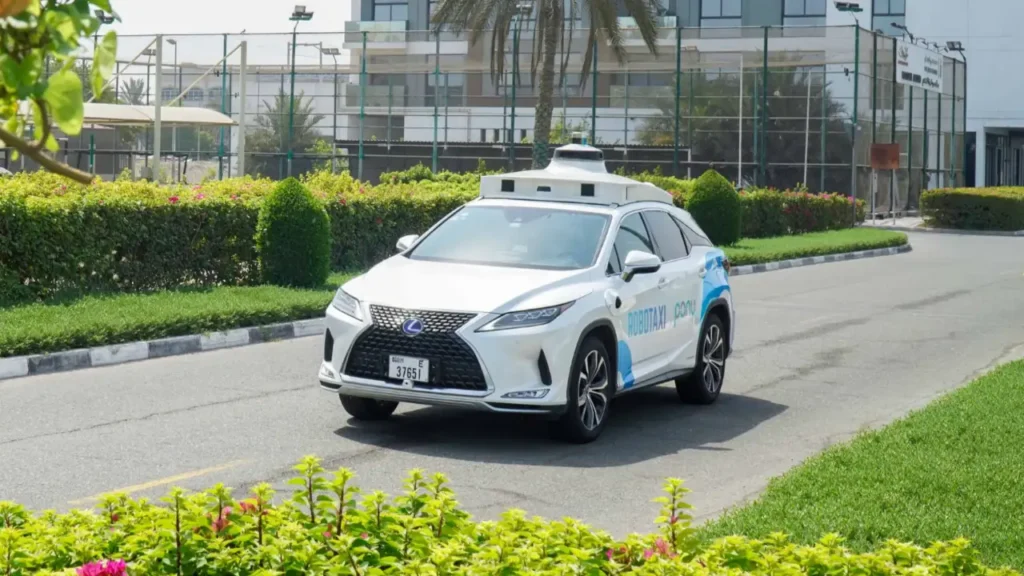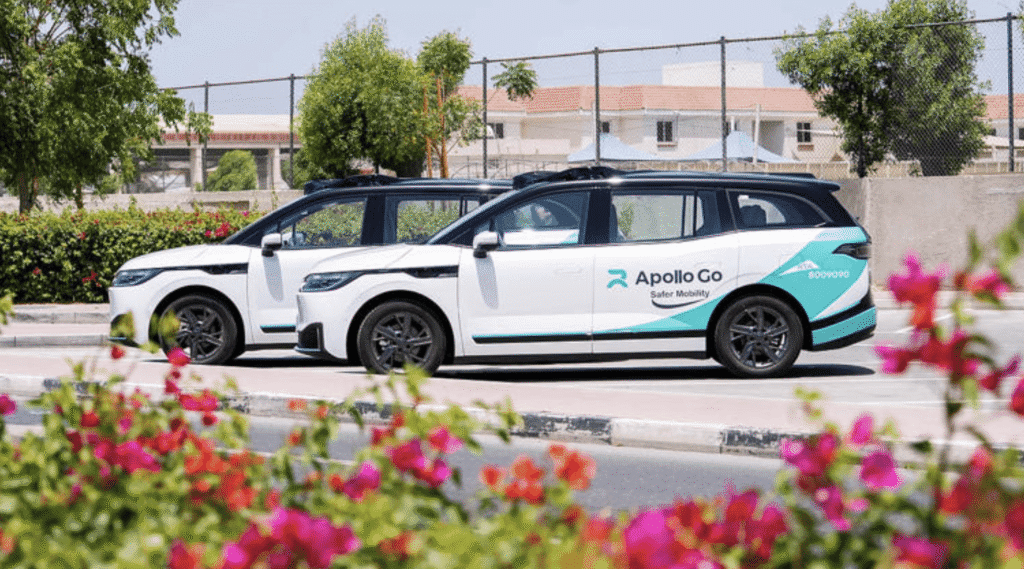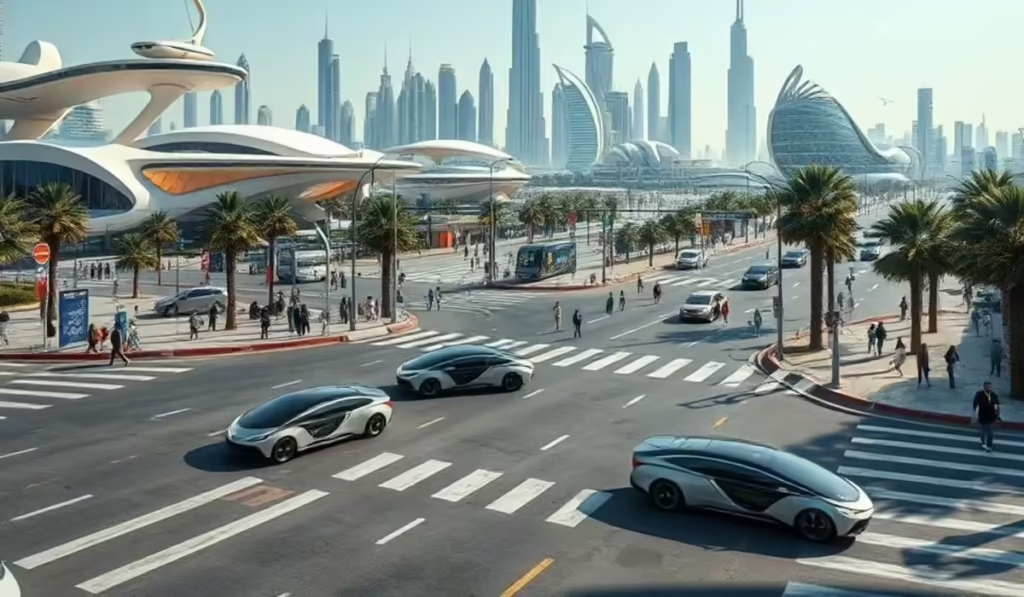Dubai autonomous vehicle trials are about to change the future of urban mobility in one of the world’s most innovative cities. As Dubai takes yet another bold step towards becoming a global leader in smart city technologies, it plans to start large-scale autonomous vehicle trials well before the official rollout scheduled for 2026.
This move signals Dubai’s strong commitment to reducing traffic congestion, enhancing road safety, and offering environmentally friendly transport solutions. Let’s take a closer look at why Dubai is making this move, what it means for residents and visitors, and how it fits into the city’s wider futuristic vision.
Why Dubai is investing in autonomous vehicles
Dubai has always been at the forefront of adopting new technologies. From sky-high skyscrapers to driverless metro trains, the city loves to experiment and lead in innovation. The decision to start Dubai autonomous vehicle trials ahead of 2026 is part of the broader Dubai 2030 vision, which aims to transform 25% of all trips in the city into driverless journeys by 2030.

The main goals behind this initiative include:
Reducing traffic accidents, since human error causes most road accidents. Autonomous vehicles promise to lower these risks significantly.

Improving traffic flow as smart vehicles can communicate with each other and traffic systems to reduce congestion.
Supporting environmental sustainability through electric autonomous vehicles that help cut down on carbon emissions and reduce noise pollution.
Boosting economic growth by creating new jobs and encouraging technological investments.
The timeline for Dubai autonomous vehicle trials
The Roads and Transport Authority (RTA) has announced that trials will begin in late 2024 and run intensively until the official rollout in 2026. These trials will involve different types of autonomous vehicles, including autonomous taxis, self-driving shuttle buses, delivery robots for short-distance logistics, and private autonomous cars.
The initial phase will focus on controlled areas such as specific districts, business parks, and certain tourist zones. Gradually, the trials will expand to more areas as data is collected and analyzed.
By 2026, Dubai plans to have a full-scale operational network of autonomous vehicles ready for public use.
Partnerships with global tech leaders
Dubai’s ambition is supported by partnerships with some of the world’s leading autonomous vehicle technology companies. Companies like Cruise, a subsidiary of General Motors, Tesla, and local startups have shown interest in collaborating with the city.
In 2021, Dubai signed an exclusive agreement with Cruise to operate autonomous taxis. This was a significant milestone, marking Dubai as the first city outside the US to enter into such an agreement with Cruise.
These partnerships bring in advanced AI systems, cutting-edge sensors, and global expertise, ensuring that the vehicles are safe, reliable, and capable of handling the city’s unique traffic conditions.
How will Dubai autonomous vehicle trials work?

The trials will be carefully planned in several stages to ensure safety and efficiency. Here’s how they are expected to unfold.
Stage 1: Controlled pilot projects
Vehicles will operate in designated areas only. Each vehicle will have a safety operator onboard initially. Data on performance, safety, and public reaction will be collected.
Stage 2: Expanded trial zones
Vehicles will cover larger areas and more diverse routes. Fewer or no safety operators, depending on success in earlier stages. Integration with public transport systems begins.
Stage 3: Pre-launch full-scale operations
Vehicles operate almost like regular taxis or buses. Advanced booking apps and on-demand services launched. Full integration with smart traffic management systems.
How safe are autonomous vehicles?
Safety is the most critical factor in Dubai autonomous vehicle trials. Vehicles are equipped with lidar sensors that allow them to “see” their surroundings in 3D, even at night or in bad weather.
They also have cameras and radar systems to detect other vehicles, pedestrians, and obstacles. AI decision-making systems analyze road situations in real-time and make quick decisions.
In addition, strict regulatory frameworks will ensure that each vehicle meets international safety standards before being allowed on public roads. Dubai has also planned dedicated lanes and priority signals to support these vehicles during the trial period.
Benefits for residents and visitors
The introduction of autonomous vehicles will transform the way people move around Dubai. Here are some expected benefits.
More convenience
Imagine booking a car that arrives at your doorstep within minutes, without a driver, and takes you anywhere safely and efficiently. This convenience could make daily commutes much more comfortable.
Lower costs
With autonomous vehicles, operational costs are expected to be lower than traditional taxis or car ownership. In the long run, this could mean more affordable rides for everyone.
Better accessibility
Autonomous vehicles will provide mobility solutions for elderly and disabled people who might struggle with traditional transport options.
Enhanced tourist experiences
Dubai is a city that welcomes millions of tourists every year. Autonomous vehicles can offer safe and futuristic travel options, including guided city tours in driverless shuttles.
Environmental impact
Dubai aims to become one of the most sustainable cities in the world. The Dubai autonomous vehicle trials support this goal by reducing CO2 emissions through the use of electric power, lowering noise pollution, and promoting a shift from private car ownership to shared mobility services.
According to estimates from the RTA, introducing autonomous vehicles could cut transport-related emissions by up to 12% by 2030.
Challenges and public concerns
Despite the exciting possibilities, there are some challenges and concerns.
Trust in technology
Many people are still unsure if they can trust a car without a human driver. The trials aim to build this trust by demonstrating reliability and safety.
Cybersecurity risks
Autonomous vehicles rely heavily on software and connectivity. Ensuring that they are safe from hacking or system failures is crucial.
Legal and regulatory hurdles
Questions around liability in case of accidents, insurance policies, and data privacy will need to be addressed carefully before full deployment.
The future of jobs and the economy

Some fear that autonomous vehicles might lead to job losses, especially for professional drivers. However, Dubai plans to balance this by creating new job opportunities in vehicle monitoring, maintenance, software engineering, and traffic management. The city will also offer reskilling programs for current drivers to shift into new roles in the evolving transport sector.
The overall economic impact is expected to be positive, with new business models emerging around autonomous mobility.
What other cities can learn from Dubai autonomous vehicle trials
Dubai’s approach could serve as a blueprint for other cities considering similar initiatives. Key lessons include starting with pilot areas to build public trust, partnering with global leaders to ensure top-notch technology and expertise, aligning projects with broader urban sustainability and smart city goals, and maintaining transparent communication with residents to address concerns early on.
How to prepare for the 2026 rollout
Residents and businesses in Dubai can start preparing by familiarizing themselves with how autonomous vehicles work, participating in public workshops or community feedback sessions organized by the RTA, and exploring potential opportunities such as partnerships with delivery services or creating apps that integrate with autonomous transport.
Conclusion
The Dubai autonomous vehicle trials mark an important milestone on the city’s journey towards a smarter, safer, and more sustainable future. By launching these trials ahead of the 2026 rollout, Dubai is showing the world that it is not just keeping up with innovation but leading it.
As the trials unfold, they will shape the future of urban mobility, inspire other global cities, and transform how millions of people experience daily life in Dubai.
Whether you are a resident, a business owner, or a curious visitor, the coming years will offer an exciting glimpse into the future of transportation, and Dubai is paving the way.
Follow us on instagram: UAE STORIES
Read More: All vessels should operate AIS in Dubai ports for safer sailing














